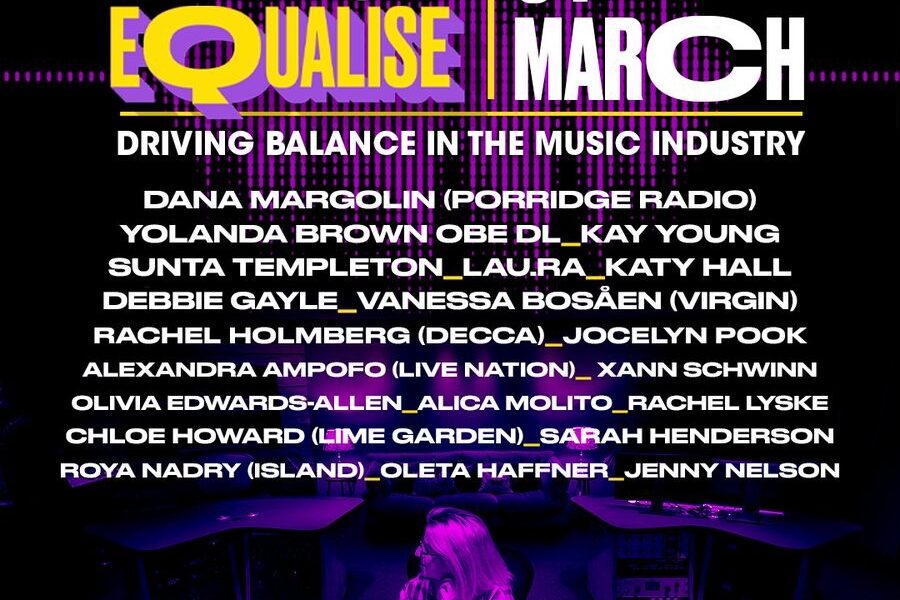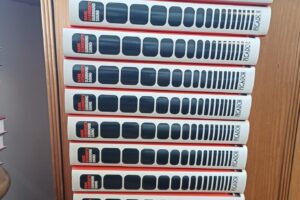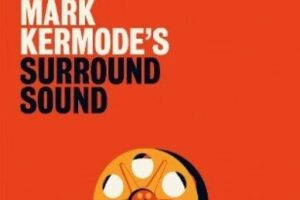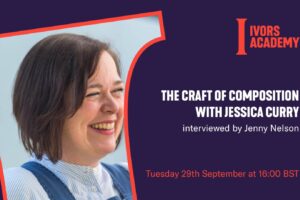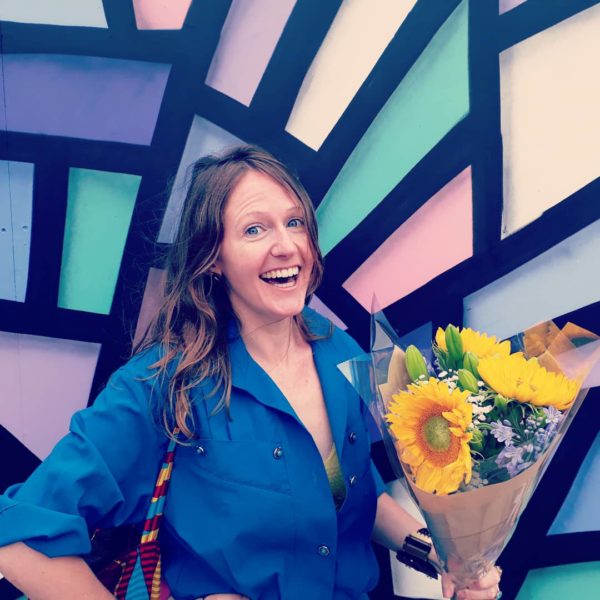On Saturday 4th March 2023, I had the pleasure of popping along to Abbey Road studios to host a panel as part of Abbey Road Equalise. This is an annual event, now in its 4th year, held around International Women’s Day, and it consists of panel talks and masterclasses aimed at inspiring the next generation of female musicians. I hosted the session called ‘Scoring for Film and TV’ which was held in partnership with Scala Radio, featuring this talented trio of screen composers:
Jocelyn Pook, whose film credits include Eyes Wide Shut, The Wife and Brick Lane, and whose multi-award-winning career is impressively varied, having scored for theatre, dance and the small screen.
Natalie Holt, one of the few women composers in the MCU with her music for Loki and the first woman to score a live-action Star Wars project with Obi-Wan Kenobi. Her film scores include Journey’s End, The Princess and Herself along with Batgirl, and she spoke about her experience discovering the film had been shelved.
Oleta Haffner, an up-and-coming composer of short films and theatre productions, who’s one of the inaugural participants in the Jonas Gwangwa Music Composition Initiative which sounds amazing: it offers mentorship and networking advice, aiming to foster broader representation in film music composition, with an emphasis on Black British talent.
Watch all of the Abbey Road Equalise 2023 panels here and scroll to around 2:59:00 for ‘Scoring for Film and TV’:
Abbey Road Equalise covers various aspects of the music industry, including A&R, songwriting and getting started as an artist. The event’s initial goal was to encourage more women to consider engineering and production as a career path, given that – get ready for a depressing yet not entirely surprising statistic – less than 5% of producers and engineers are female.
I found a similarly dispiriting statistic in a recent Guardian article by Andrew Gumbel about abuse within the film scoring industry, which is well worth a read. It cites ‘The Celluloid Ceiling in a Pandemic Year: Employment of Women on the Top U.S. Films in 2021’ by Dr Martha M. Lauzen, an annual study tracking the employment of women in the top 250 grossing films. The findings showed that women comprised 7% of composers working on the highest-grossing films in 2021, an increase of 2 percentage points from 5% in 2020. So, do we cling on to the fact that it is, slowly but surely, heading in the right direction, or do we try to confront, or at least articulate, the barriers that remain?
We touched on this during the panel discussion, but as our overall goals of the session were to inspire and encourage aspiring female screen composers, I felt it was important to hear the good stories as well as the negative. Believe me, I’d be very willing to do another panel focusing solely on the negative if there is any appetite for it – and it’s also worth pointing out I’m very aware that this isn’t just a film music industry issue!
Other discussion points included the composers’ big breaks into the industry and it was fascinating to hear Jocelyn Pook talking about getting a phone call out of the blue from Stanley Kubrick! Watch a clip here.
The composers also shared their advice for creating a good working dynamic with directors, orchestras and other key collaborators, their experiences of pitching, the importance of mentors and of creating a community of composers, with a special mention for the Alliance for Women Film Composers.
Big thanks to the Abbey Road team, especially to Mark and Jamie, for getting me involved. I’ve been to the studios a couple of times in the last year or so to work on Scala Radio specials hosted by Mark Kermode, and it’s always a genuine thrill to be there, even more so since reading David Hepworth’s brilliant book Abbey Road: The Inside Story of the World’s Most Famous Recording Studio. Highly recommended!
